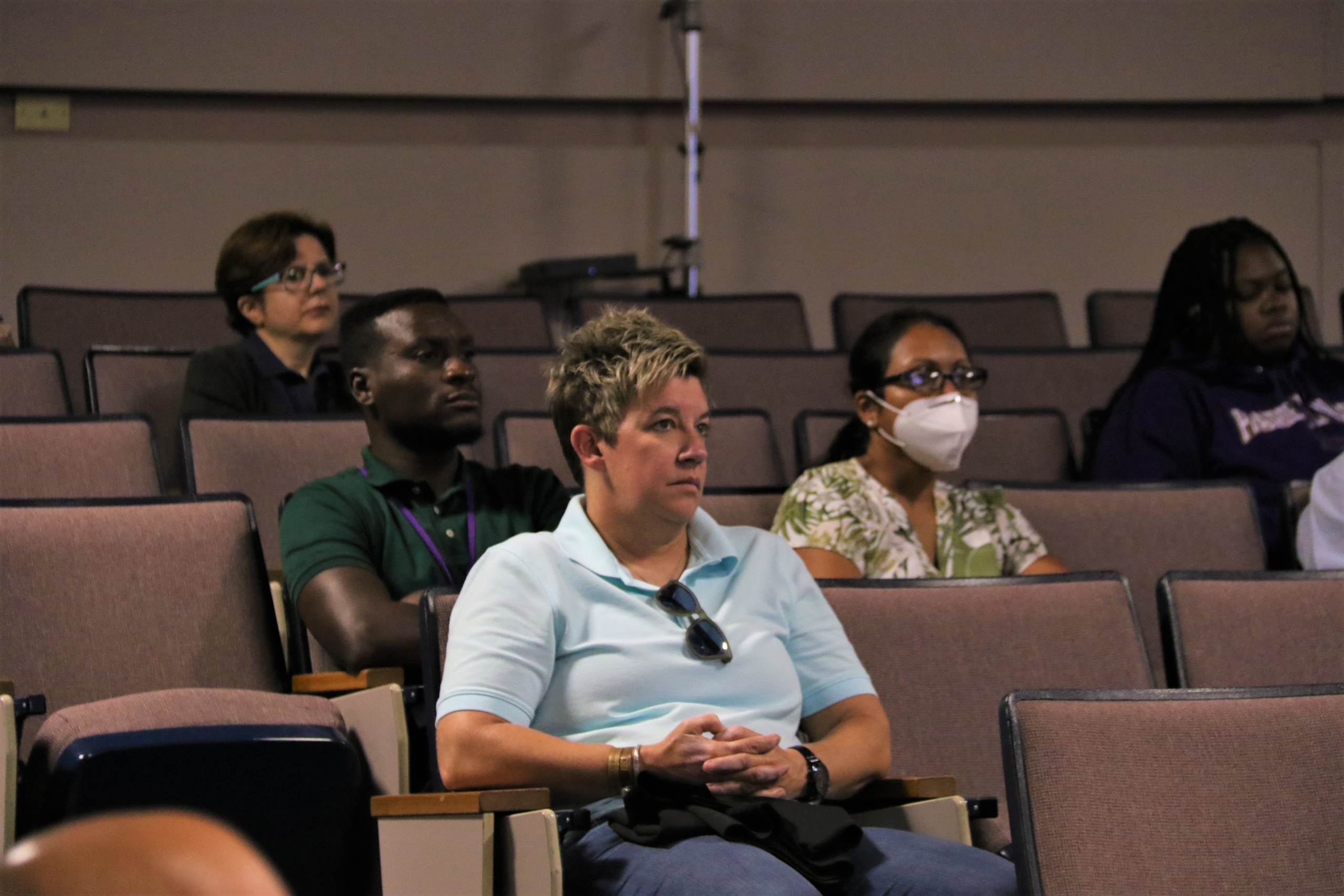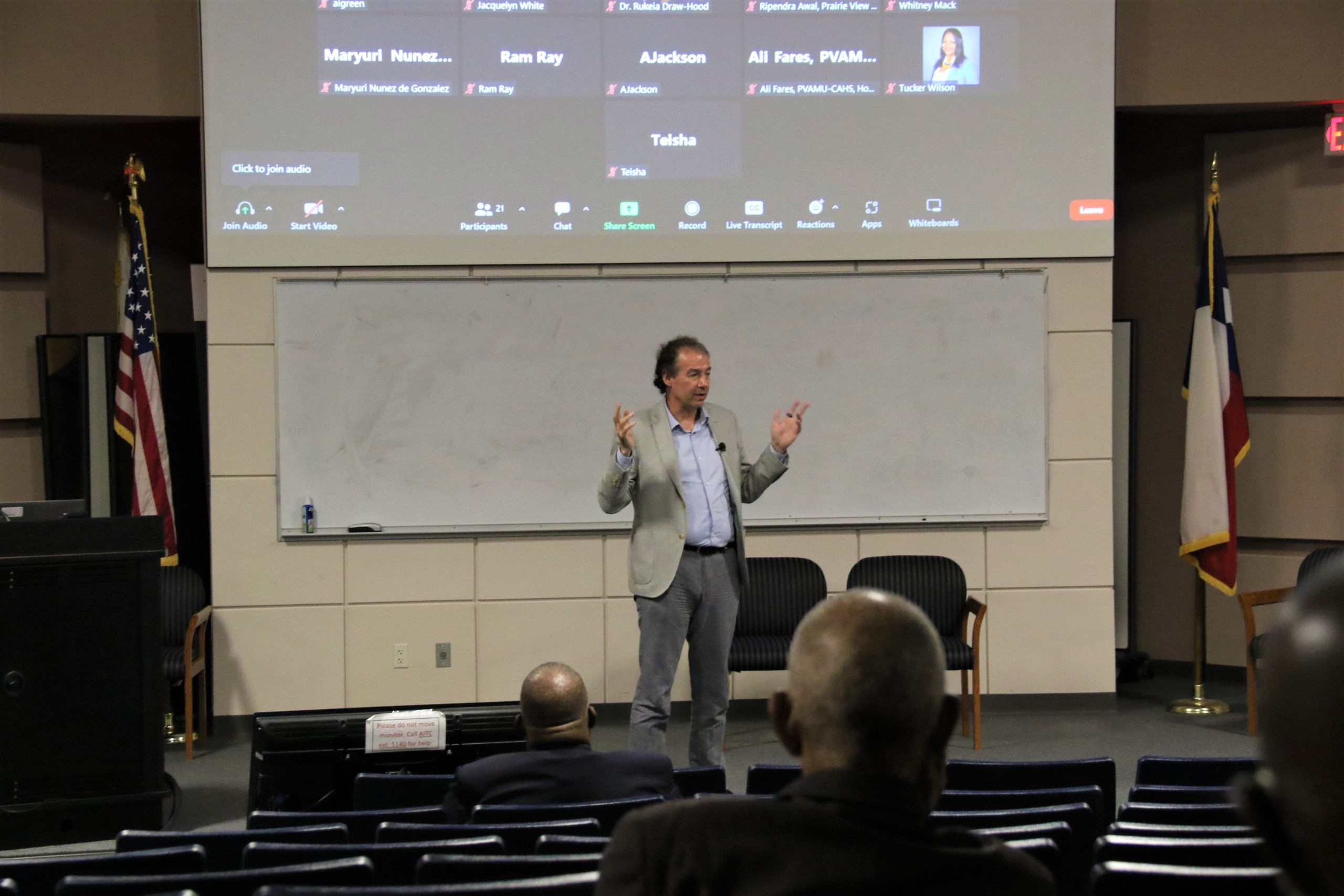One of the College of Agriculture and Human Sciences’ most enduring events, the Land Grant Seminar Series, just wrapped up another year filled with top-of-the-line research scientists sharing their challenging work with our CAHS community. Led by CAHS Endowed Professor Ali Fares, Ph.D., the series provides a platform for researchers and scientists to offer insight into their work and answer questions from listeners.
The series started in 2013 as a venue for scientists, faculty, lawmakers, and even students to share their research and invite key people in our extension community to share what they have been studying. Every Thursday morning, a new presenter gets their time in the limelight to discuss the exciting ideas they have been studying, and it has been an effective way for the college to connect with the outside world. The series is open to all, allowing our CAHS researchers to broadcast their findings to a large, diverse audience to collaborate on our shared missions. Even though the pandemic forced us all to shelter at home in 2020, the land grant series became, and remains in part, virtual to keep it an accessible event for all.
“We needed this program,” Fares said. “You cannot have a mission or college of our size without this type of venue where people can exchange ideas.”
It also serves as a training stage for students. To prepare for this year’s Association of Research Directors Conference, students slated to present at that conference ran through their presentations during the series. They could hear immediate feedback from the audience and tweak any issues. Faculty and staff preparing to defend their thesis for a Ph.D. program have also practiced their presentation by joining the land grant seminar series. Fares says new graduate students who enroll in the CAHS’ new Master of Science degree program will also be obligated to present their studies in the series.
“I love it when students present for the series,” Fares said. “It’s common to see faculty present their research publicly. But to see a young man or woman standing there to defend their work and talk about it confidently is an impact that will stay with them for a long time.”
There are always plans to grow the series as well. Fares says he would like to have an even more diverse group of presenters moving forward, and he always strives to have topics directly relevant to issues in the agricultural science community. A recent presentation by Patrick Stover, Ph.D., director of Texas A&M University AgriLife Institute for Advancing Health Through Agriculture, discussed ways to improve the health of others through proper nutrition. These kinds of presentations from the college allow further discussion and breakthroughs in the topic.
“I enjoy the interactive aspect of the series that most,” Fares said. “I appreciate that any person watching can ask questions to the presenter, and we can address them.”
Fares says the land grant seminar series is an important hub for the college and its stakeholders, he and hopes the audience for this event continues to increase steadily.
Pascale Mondesir
Communication Specialist
pamondesir@pvamu.edu




